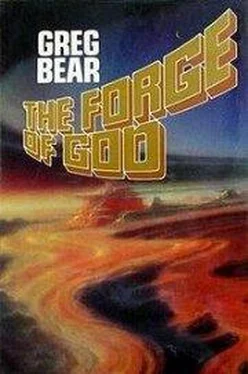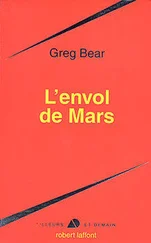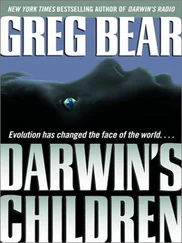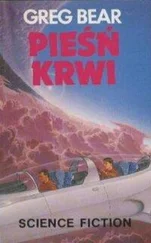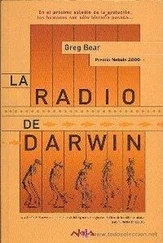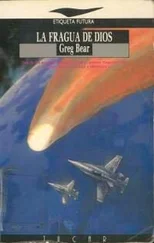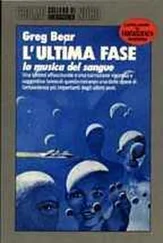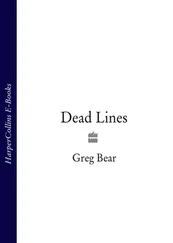The witnesses were subdued. Nobody said a word or made a loud sound. He had never experienced such rapt concentration in a crowd. Marty stood by his side, having let go of his hand, a boy barely four feet eleven inches tall, standing alone. How much does he understand?
Perhaps as much as I do.
Nothing compared with what they expected to see. Not the burning of an ancestral house, or the sinking of an ocean liner; not the bombing of a city, or the horror of mass graves in time of revolution or war. The crime that had been committed against humanity was virtually total. Except for them — the occupants of the arks, and the records saved for transport in the arks — the Earth would be no more.
He could not wrap his thoughts around the totality. He had to take separate losses and mull them over. They were highly personal losses, things he would regret; but his single mind was not the holographic mind of humanity.
Essential things would be destroyed that he had never known. Connections, evidences, histories as yet uncovered, irretrievable. All the arks could save was what humans had so far learned about themselves. Hereafter, they would be refugees with no hope of ever returning to a homeland, no hope of recovering the thread of the pasts they had lost.
They would be dependent on the kindness, or whatever their motivations might be, of strangers, of nonhuman intelligences that so far had shown little evidence of being willing to reveal themselves; benefactors as mysterious as their destroyers.
Lives. Billions of human beings, their existence always fragile, sharing mutual oblivion. There was no way Arthur could encompass that. He had to deal in abstractions.
The abstractions were enough to sear him. Backed by the realization that what he saw was real and immediate, his soul burned. He had had months to come to grips with these facts and implications; those months had not done to him what the vision of the Earth, whole and bright, was doing to him now.
No explanations came from the network. Later, when each of the witnesses had faced their private griefs, perhaps the details of the end would be made clear, and a planetary postmortem would be conducted.
Strange images flashed through his mind. Television commercials from his childhood, smiling women in Peter Pan collars with tightly coiffed hair, images of motherhood tending perfect families. Faces of soldiers dying in Vietnam. Presidents standing one by one before the television cameras, ending with Crockerman, a very sad image indeed.
The 200-inch telescope at Mount Palomar. He had never worked there, but he had toured the historic site often enough. The 600-inch at Mauna Kea. His dormitory room at Cal Tech. The face of the first woman he had ever made love to, that first year in university. Professors lecturing. His joy on discovering the properties of a Mobius strip; he had been thirteen at the time. Equal joys on grasping the concepts of limits in calculus, and reading the first articles on black holes in the late 1960s.
Harry. Always Harry.
The first time he had seen Francine, in a skimpy black one-piece swimsuit, as voluptuous as a goddess from the sea, with long wet black hair, the backs of her legs and her inner thighs rough with damp sand, running to take a towel from her friend and collapsing on her back with a laugh not five yards from where Arthur sat. Not all is lost.
Marty touched his arm. “Dad, what’s that?”
The globe did not seem noticeably different. But Marty pointed, and others among the witnesses were murmuring, pointing.
Over the Pacific, a silver-white mass grew like mold in a petri dish. Over the western United States and what they could see of Australia, similar blossoms of condensing moisture expanded.
Within minutes, the Earth blanketed itself in an impenetrable blanket of white and gray. Waves passed through the mass, ripples as visible as those in a pond, but moving with clockwork slowness. Above the north pole, frantic curtains of light played, guttering and re-forming like lines of candles in a breeze. They were aurorae. Something was wreaking havoc with Earth’s interior dynamo.
Arthur pictured the explosion expanding through the superhot, highly radioactive inner core to the outer core, where the Earth’s magnetic field was born. The dense molten material compressing even more highly on the edge of the expanding blast. Mechanical shock waves shooting out to the crust, shifting the ocean basins — already weakened by the chains of thermonuclear explosions — and shifting the continents, up to ten times thicker than the ocean basins, buckling them all, raising them a few hundred feet, or a few miles. Oceans receding, spilling out over the continents…All now hidden behind the masses of clouds.
The Earth’s surface extremely hot, atmosphere sloshing like water in a bowl. Most of humanity dead already, destroyed by earthquakes, horrendous atmospheric storms or floods. Soon the rock below would compress no more, and the Earth would—
“Jesus,” Reuben said behind them. Arthur glanced at him; the young man’s face expressed both fascination and horror.
The clouds clarified. They glimpsed through smeared atmospherics a muddy, churning mass, lit in places with the hellish light of magma welling up through fractures hundreds of miles wide. Continental and ocean-floor plates drove together at their edges, fusing into solids no more able to keep their shape and character than gases or liquids, rippling like fabric.
Nowhere could he see any of the works of humanity. Cities — if any still existed, which did not seem likely — would have been far too small. Most of Europe and Asia were on the other side of the globe, out of sight, their fate no different from what they saw happening to eastern Asia and the western United States and Australia. Indeed, these landmasses could no longer be distinguished; there were no oceans or land, only belts of translucent superheated steam and cooler cloud and tortured basins of mud, shot through with dull brown magma and, here and there, great white spots of plasma beginning to burrow out from the interior.
“Is it going to blow up?” Marty asked.
Arthur shook his head, unable to speak.
Despite the growing distance between the ark and Earth, the globe visibly expanded, but again with clockwork slowness.
Arthur checked his watch. They had been viewing for fifteen minutes; the time had passed in a flash.
Again the Earth took on the appearance of a jewel, but this time a great bloated fire opal, orange and brown and deep ruby red, shot through with spectral patches of brilliant green and white. The crust melted, turning into basaltic slag adrift in slowly spinning patches on a sea of brown and red. There were no discernible features but the colors. The Earth, dying, became an incomprehensible abstraction, horribly beautiful.
Already, with the appearance of long spirals of white and green, intensely bright, the final fate became obvious. The limb of the world no longer made a smooth curve; it had visible irregularities, broad low lumps distinct against the blackness. From these lumps, jets of vapor hundreds of miles high lanced through the turbid remnants of the atmosphere and cast pale gray fans into space.
Such volcanoes might have been seen in the early ages of the Earth’s coalescence, but not since. New chains of released fire and vapor emerged across the face of the distorted globe. Slowly, a spiraling snake of white plasma shot chunks from its interior coils outward, the projectiles traveling at thousands of kilometers an hour but still falling back, being reabsorbed.
No single piece of the Earth’s crust had yet been flung out with a velocity equal to or greater than eighteen thousand miles per hour, orbital, velocity, much less escape velocity. But the trend was obvious.
Читать дальше
